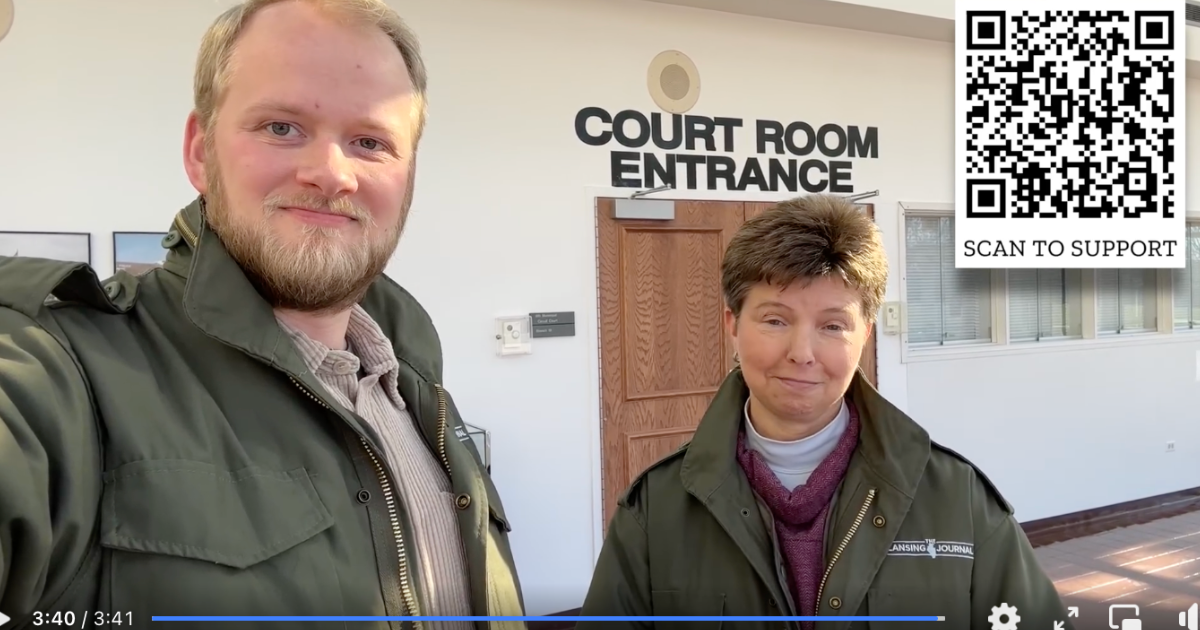How The Lansing Journal grew recurring reader revenue by 20%
They secured 48 new monthly subscribers and $14,000 in projected revenue in four weeks.

In late 2023, following her participation in LION’s Sustainability Audit and Sustainability Lab programs, Melanie Jongsma, publisher of The Lansing Journal, launched a matching campaign to reach 350 monthly supporters, or about 10 percent of their total subscriber base. Melanie has been working toward this goal since she participated in a 2021 LION program, where her coach, Phillip Smith, mentioned that healthy news businesses should be converting about 10 percent of their subscribers into monthly supporters. In this spotlight, we’ll discuss the tactics and results of the campaign.
The Goal
Secure 50 new monthly supporters to hit 350 by the end of 2023.
The Approach
Leveraging $5,000 of their LION Sustainability Audit program stipend, they created a matching campaign to generate recurring monthly support. The campaign ran from December 12 to December 31, 2023.
The Impact
The Journal signed up 48 new monthly supporters, yielding $14,000 in projected revenue for 2024. Six months later, only one of those supporters has canceled their recurring contribution. ”This is why I love my Monthlies!” said Melanie. “Once they sign up, they are VERY faithful.”
How It Happened
On the heels of a successful Giving NEWSday matching campaign in November, The Journal launched the new matching campaign, appealing to their community across email, social media, and direct outreach. The campaign kicked off with an email to all subscribers with the subject line, “A Sustainability Grant of $5,000 has been set aside to award The Lansing Journal $100 for each new Monthly Supporter (up to 50) who signs up before the end of the year.”
The next day, they sent an email appeal to subscribers who had never given before: “If you’ve been enjoying The Lansing Journal, you’ve been benefiting from other people’s support. We need your support too, and now is the perfect time because of this matching gift.”
The Journal published a video on Facebook about the importance of the work, with an appeal for people to sign up as monthly supporters. Melanie and the managing editor popped up on Facebook Live throughout the campaign and asked people to give.
Melanie also used the campaign to deepen relationships with advertisers. She called local business owners to see if they would enroll as monthly givers in exchange for advertising, resulting in three ongoing advertising clients. Charging the advertising rate to their credit card as a recurring gift not only fulfilled the match requirement, but also freed Melanie up from having to sell and invoice advertisers each month.
The last few days of the year included a final flurry of email appeals:
- 12/27 – “This email is only 49 words”
- 12/29 – “Small gifts help too”
- 12/30 – “It’s New Year’s Eve and the matching gift expires soon”
- 12/31 – “New Year’s Eve afternoon”
- 12/31 – “New Year’s Eve evening – 11 more matches left”
While the initial concept of a matching campaign required some explanation, The Journal’s audience was ultimately eager to participate.
Melanie found appeals with a clear deadline – “Help us finish 2023 strong” and “Before you head out to your New Year’s Eve celebration, could you give one last gift” – and those that highlighted progress toward their goal of 50 supporters performed exceptionally well.
In addition to seeing what appeals resonated with their audience, Melanie learned what tools and processes best support fundraising campaigns. She tracks supporters in Mailchimp to ensure she’s targeting appeals accurately and in their CRM, Bloomerang, to manage donor and payment information. Keeping both up to date requires manual efforts, resulting in occasional discrepancies and another drain on her limited time. She also experimented with GiveWP, as it included a thermometer-style gauge to publicly track the progress of the campaign. She’s since moved away from that tool, particularly to avoid having another database to keep updated.
Melanie says the next steps are to get more efficient at tracking and managing data by setting up automations to connect her email service with her CRM and spending less time designing landing pages and giving forms.
The Journal recently launched a new “summer promo,” where monthly supporters contributing at $15/month receive a t-shirt. An initial email to existing supporters prompted 12 to increase their monthly gift. A subsequent email to all subscribers yielded only two responses, perhaps suggesting that merch may be more motivating for engaged rather than potential supporters.
The Takeaway
The Lansing Journal took a unique approach to a fundraising campaign, setting aside $5,000 to frame a monthly support campaign as a matching campaign, motivating potential supporters to donate to unlock further support for the organization, which should yield nearly triple that amount thanks to the structure of the ask. Melanie also made repeated appeals to potential supporters on multiple platforms (email, Facebook, and Facebook Live for The Lansing Journal).
The focus on cultivating recurring revenue is also important since that revenue is easier to forecast and plan against while also reducing the ongoing time devoted to raising reader revenue from one-off contributions.
Melanie’s final thoughts? “Matches work well. And repetition and a shorter time frame works well.”
Sign up for the weekly newsletter
Join the LION mailing list to get our weekly roundup of opportunities and resources for news entrepreneurs. View our most recent issues.
Related Articles
Last call: Apply to receive $600 in travel support to attend the Independent News Sustainability Summit in Chicago
Fill out the travel stipend request form by Sunday, July 21, at midnight ET.
Igniting innovation: How RJI empowers independent news publishers to experiment with new ideas
RJI supports small newsrooms and community-centered journalists as they work to serve their communities.
How The Bedford Citizen prioritized its internal operations to pursue revenue growth and avoid burnout
Through LION’s Sustainability Lab, the team developed a master spreadsheet to track ideas and impact.